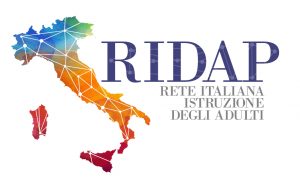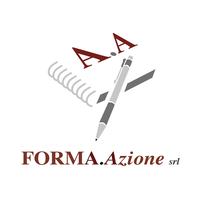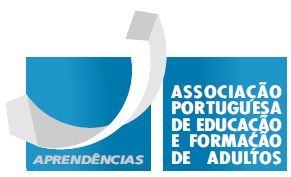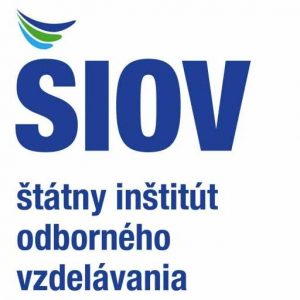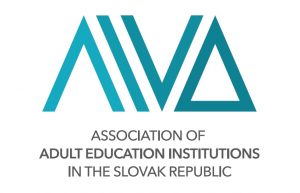Designing the Modern Policy of Adult Education - MOVED
Outreach
The aim of the project is to map activities in the field of adult education at the level of local governments, especially at the level of local authorities and cities; to increase the awareness of regional policy makers about the functions and benefits of adult education activities for the region, employers, but also for final participants – citizens; to support the
institutional capacity of public administration at the regional level and to contribute to the development of an effective public policy for adult education at all levels, with an emphasis on self-government.
Project Goal is to map activities in the field of adult education at the level of local governments, especially at the level of VÚC (ie higher territorial unit) and cities;
to increase the awareness of regional policy makers about the functions and benefits of activities in the field of adult education for the region, employers, but also for the final beneficiaries – the citizens;
to increase the institutional capacity of public administration at regional level;
to contribute to the design of an effective public policy of adult education (AE) at all levels with an emphasis on local governments.
Reasons why the project / program is considered a “good practice”
The project is based on the need to improve and modernize public policies in Slovakia. Adult education is still not a separate policy, we find this topic only within the concept of lifelong learning. The project contributes to the definition of this policy, while one of the basic starting points is to improve the availability of educational opportunities for all interested parties in Slovakia with an emphasis on less developed districts. The project responds to the need to increase adult participation in education. The project is also interesting by pointing out the wide range of institutions
that can provide educational activities.
Managing authority / organisation
Academia Istropolitana Nova, Prostredná 47 / A, 900 21 Svätý Jur, Slovakia
Main target group
All adults (general public)
Source of funding
European
Stakeholders involved
Institutional environment of providing and creating the offer of adult education – secondary and higher educationinstitutions, private and public educational institutions, including NGOs, employers, ÚPSVAR and cultural and educational facilities, local authorities and cities. The target groups of the project, to which the developed recommendations are addressed, are mapped groups of providers of adult education at the horizontal level and representatives of state administration at the national level and local governments at the regional level. List of cooperating entities: UTV University of Žilina, UMB B. Bystrica, PU in Prešov, University of Economics and Public Administration Management in Bratislava, The town of Hlohovec, The town of Trebišov, J. A. Komenský EducationalAcademy in Trenčín, Regional education centre in Nitra, Department of Lifelong Learning MŠVVŠ SR, Association of Adult Education Institutions AIVD, Association of Regional Education Institutions, Association for Career Counselling and Career Development, State Institute of Vocational Education.
Contribution of the practice in improving / promoting the social inclusion of the beneficiaries
If local governments implement at least some of the recommendations for modern adult education policy (Handbook
for Municipalities), they will address adult education systematically, thus increasing the number of adult learners and,
ultimately, improving the quality of life in their regions.
The need and decision to learn is related to understanding the benefits of education. Communication about the
benefits of VD is an important condition for increasing interest in the regions in activities in the field of VD. It is
important and helpful to perceive the benefits of VD in terms of economic and non-economic benefits. For
simplification, we present three levels of VD actors, individual participants, ie citizens, employers and society.
The benefits for learners are
– economic: higher income, employability in a lifelong perspective, better career prospects;
– other: improved quality of life and health, greater participation in community life and civic activities, success in
personal and family life.
The benefits for the employer are
– economic: profit, competitiveness, production, innovation capacity;
– other: corporate culture, workforce development and stability, employee motivation.
The benefits for the community and society are
– economic: higher GDP and competitiveness, human capital;
– other: sustainable development and environment, reduction of inequalities, social reconciliation, civic society, health
and living standards of the population.
Elements of the project / program that could be easily transferred to other contexts
Education in general and its support is a prerequisite for development, success, efficiency …in any sector of the
economy.
Functional connection and cooperation of self-government with economic partners, civil society is a model for effective
solution of current challenges, including adult education.
Other potential target groups to which the project / program could be extended
The potential for expanding similar partnerships and cooperation, and thus reaching other target groups, is practically
unlimited, limited only by the territory to which the solution should relate. From the point of view of the given MOVED
project, the proposed model of cooperation, information, financing could be transferred to various target groups,
which the local government decides to address.
Practical evaluation carried out
The project was actually a monitoring and evaluation of current practice. Whether the project recommendations have
been put into practice has not been evaluated.
Results and measures taken after evaluation
The measures are the responsibility of the local / regional / national authorities for which the results of the project are
intended.
Participation data (if available, also provide reference period and data on low-skilled involvement)
There were no training activities in the project and no training participants were involved.
Description of the methods of implementation and any recommendations
Main project activities:
1. Monitoring of public health policy in the regions of Slovakia and comparison of the obtained information with
selected EU countries (Slovenia, Estonia).
2. Evaluation of public policy VD analyzes and evaluates the obtained information. It compares information in other
European countries, documents prepared at the European level, UNESCO and OECD.
3. The proposal of public policy solutions VD brings proposals and recommendations for modern adult education policy
and its implementation in practice with emphasis on the regional and local level (Handbook for local governments)
The proposed recommendations for ensuring VD at the regional level can be implemented at minimal cost. Therefore,
we expect local governments to implement at least some of the recommendations, they will address adult education
systematically and thus increase the number of adult learners and, ultimately, increase the quality of life in their
regions. To this end, we recommend mapping the benefits of education more thoroughly for learners, employers and
the community.
Project / program website or other online reference resources
